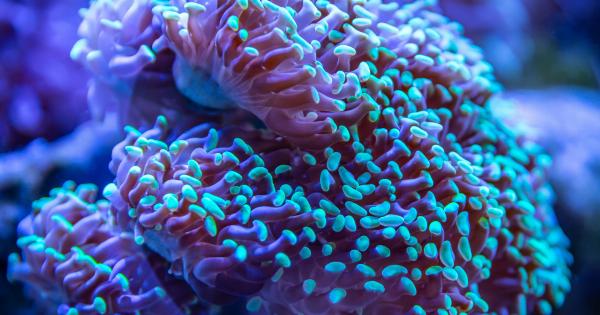Salt is often seen as a villain when it comes to our health. We’re told to limit our intake to avoid conditions like high blood pressure and heart disease. However, salt is actually an essential nutrient that plays a vital role in our bodies.
It’s important to understand the connection between salt and our thirst, as this relationship can have a significant impact on our overall health.
The Role of Salt in Maintaining Fluid Balance
One of the primary functions of salt in our bodies is to maintain fluid balance. Sodium, a component of salt, helps regulate the amount of water in and around our cells. When we consume salt, it increases the concentration of sodium in our blood.
This prompts our bodies to retain water, preventing dehydration and maintaining proper fluid balance.
Salt and Thirst: How They Interact
Thirst is our body’s way of signaling that we need more fluids. Interestingly, our bodies regulate thirst based on the concentration of sodium in our blood.
When the sodium levels are high, it triggers a sensation of thirst, prompting us to drink more water and dilute the sodium concentration.
The Role of Salt in Electrolyte Balance
Electrolytes are essential minerals that carry an electrical charge and help maintain various bodily functions. Sodium, along with potassium and chloride, is considered a crucial electrolyte.
These electrolytes facilitate nerve signaling, muscle contraction, and fluid balance. Salt consumption helps ensure an adequate supply of sodium, supporting the proper functioning of these essential processes.
The Impact of Salt Intake on Thirst
Consuming too much salt can lead to an excessive concentration of sodium in the blood. This creates an imbalance in electrolytes and disrupts fluid balance, which can ultimately affect thirst regulation.
When sodium levels are consistently high, our bodies may become desensitized to the sensation of thirst, leading to inadequate hydration and potential health issues.
The Importance of Balancing Salt Intake
While salt is necessary for our bodies, it’s crucial to strike a balance in our intake.
The American Heart Association recommends limiting daily sodium intake to less than 2,300 milligrams, or even 1,500 milligrams for individuals with high blood pressure or certain health conditions. By moderating our salt consumption, we can ensure our bodies maintain a healthy water balance and prevent complications associated with excessive sodium levels.
Factors Affecting Salt Preference and Thirst
Individuals may have differing preferences for salt due to various factors. These factors include genetics, age, climate, physical activity levels, and overall health.
Additionally, certain medications and medical conditions can affect salt preferences and thirst cues. It’s essential for individuals to listen to their bodies and make informed decisions when it comes to salt intake.
Strategies for Reducing Salt Intake
Reducing salt consumption can be a challenge, considering its prevalence in processed foods and restaurant meals. However, there are several strategies individuals can adopt to lower their salt intake.
These include cooking at home using fresh ingredients, reading food labels, flavoring food with herbs and spices instead of salt, and gradually reducing the amount of salt used in cooking.
Monitoring Salt Intake and Hydration
To maintain a healthy balance, it’s beneficial to monitor both salt intake and hydration levels.
Keeping track of daily sodium intake, either through food diary apps or reading labels, can help individuals make conscious choices to reduce excessive salt consumption. Additionally, ensuring adequate hydration is crucial for overall health. Paying attention to thirst cues and drinking water regularly is an essential practice.
The Psychological Aspect of Salt Cravings
Salt cravings are common, and they can sometimes be attributed to psychological factors. Stress, emotional eating, and conditioned responses can contribute to cravings for salty foods.
Recognizing these triggers and adopting alternative coping mechanisms can assist in managing salt cravings and promoting a healthier relationship with salt consumption.
Conclusion
In conclusion, salt has a close and intricate connection with our thirst. It plays a crucial role in maintaining fluid balance, electrolyte levels, and overall hydration.
While excessive salt intake can impact thirst regulation and lead to health complications, moderate and mindful consumption of salt is essential for our bodies to function optimally. By understanding this connection and making informed choices, we can strike a balance that promotes good health and well-being.





























